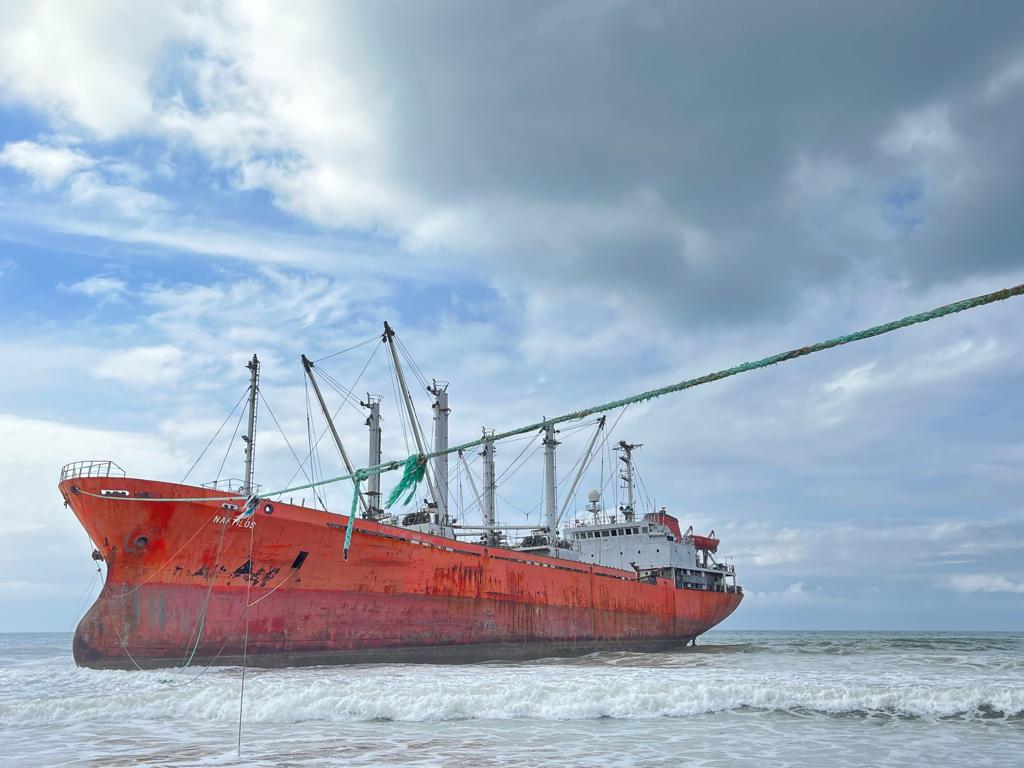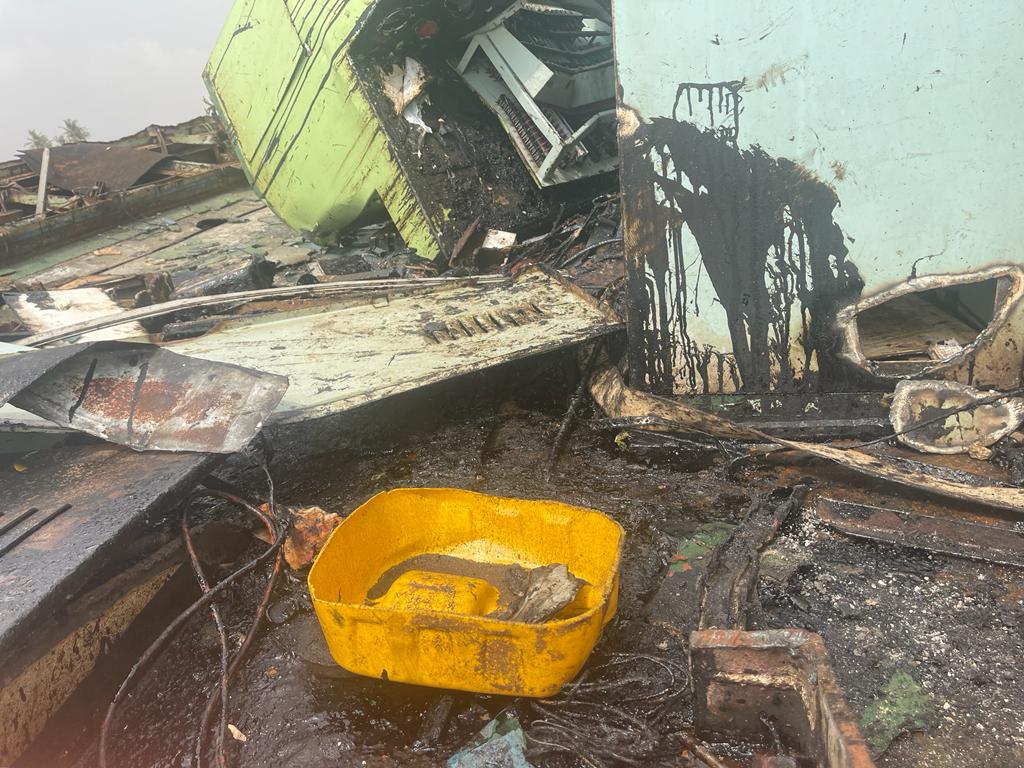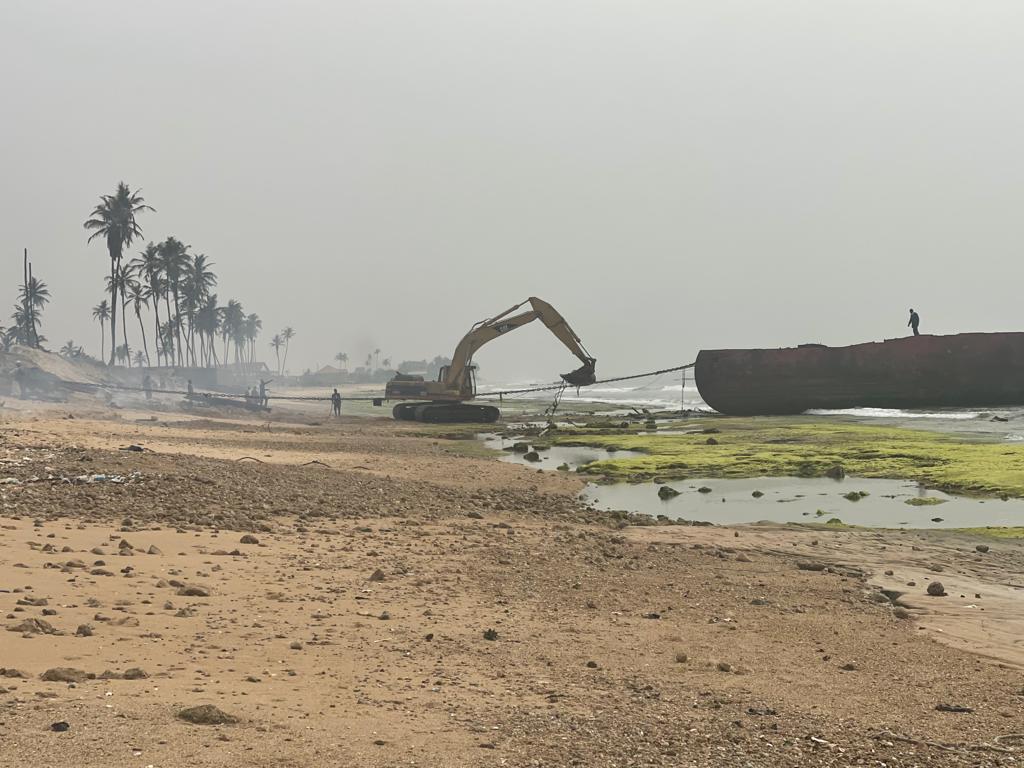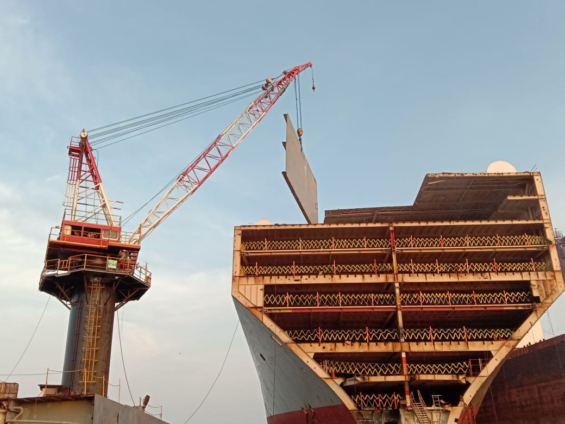
Audio By Carbonatix
Only operations in the newbuilding and demolition markets, out of the four sub-markets in the shipping industry (freight, newbuilding, sales and purchase, and demolition) can affect the real fleet supply in Maritime transportation.
Shipping corporations can place new orders to enhance capacity in a rising market, while in a declining market, old and obsolete vessels can be consigned to scrap dealers for demolition, where derelict ships are dismantled and recycled (Stopford 2009). In comparison to the 1980s and 1990s, the shipping markets have been exceptionally strong across recent years in all segments.
The catalyst for this change was the deregulation of world trade in the 1990s and China's admission to the World Trade Organization, both of which resulted in a frenzy of trading activity. One may easily argue that shipping sector improvements have significantly reduced the landed costs of commodities in targeted countries, encouraging increased globalization.
The interdependence of global trade and the merchant marine sector has never been more apparent than it is today. When ship supply exceeds demand, general market freight levels fall and shipowner revenues fall.
As a result, certain ships may become unprofitable to run, prompting shipowners to sell them for scrap. The ships destined for demolition are usually but not always older ships that have become technically outdated.
Technical or economic obsolescence is the reason for scrapping a ship, and the latter is highly influenced not only by predicted freight market levels, but also by the rate at which more efficient ships are introduced into the market.
The scrap value of a ship is determined by the realizable value of the ship's components as well as the cost of demolition. Both are heavily influenced by the cost mechanisms in place in the anticipated demolition country.
China, India, Bangladesh, and Pakistan are the world's top shipbreakers. According to Clarkson SIN (2015), these four countries account for 82% of all ships and 92% of all DWT (Dead Weight Tonnage). The most essential measurement unit in the shipbreaking process is the lightship displacement tonnage (LDT).
When a ship is sold for demolition, the price is nearly often specified per lightship ton. This gives a rough estimate of how much material will be useful after the demolition. The LDT is determined by the ship's type and size.
Ships of similar size but different kinds have varied LDT. Ghana has a vision of becoming the Integrated Maritime Hub (IMH) of the West African subregion and this vision comes with bigger draft ships calling the ports of Ghana viz, Tema and Takoradi and this could make Ghana a potential ship demolition market.
From a life-cycle perspective, the ship demolition industry is lucrative because of the variables that increase the probability of ship demolition such as the vessel’s age, vessel type, the detention rate of the vessel, its safety profile, earnings per voyage and the demolition price.
In the last couple of years, ship demolition has tended to gravitate toward countries with low labour costs, lax occupational safety standards, and lax environmental enforcement over antiquity and the 550 km coastline of Ghana is becoming a damping site for these shipwrecks posing a potential serious environmental health crisis for the quarter of Ghana’s 31 million population living along the coast.

Ship recycling, as the name implies, is a green activity that supports sustainable development by recycling and reusing tons of obsolete, abandoned steel in the form of an end-of-life (EOL) ship.
Reusing and recycling materials and equipment to such a large extent by means of ship recycling must be considered an important activity that supports sustainable development and is believed to be the most eco-friendly way of disposing of ships at the end of the economic lives but what is currently happening along the coast of Ghana is the constant pollution of the marine environment with hazardous substances such as asbestos, polychlorinated biphenyls (PCBs), lead, mercury, etc. both onshore and in the sea like what is currently going on along the beaches of Kpone as can be seen from the photos below.


To address growing concerns about environmental, occupational health, and safety risks associated with ship recycling, the International Maritime Organization (IMO) established the Hong Kong International Convention on the Safe and Environmentally Sound Recycling of Ships in May 2009.
The Hong Kong Convention's goal is to create a legally enforceable document that assures that ship recycling does not endanger human health, safety, or the environment. Interestingly, Ghana recognizes the importance of safe and environmentally sound ship recycling and, as a result, ratified the Hong Kong Convention by depositing the instrument of accession with the Secretary-General on November 28, 2019 (just two years ago).
In recent years, the number of steel firms in Ghana has increased, particularly in the TemaKpone industrial enclave, which is ideally located near the Tema port.
As a result, the demand for the raw materials that these steel companies require, such as scrap metal from ships, has increased. Because of this potential, Ghana will require a legal framework to govern ship recycling activities.
Although ship recycling or shipbreaking is not as popular in Ghana as it is in other countries, the few scrapping operations that do take place are done without regard for safety standards because there is no law governing shipbreaking in Ghana.
Before beginning ship breaking, the Ghana Maritime Authority issues licences to shipbreaking firms and the Ghana Port and Harbours Authority’s safety department issues permits but both entities do not follow through the process to ensure that the shipbreaking process is done in the right way.
For the industry, there are no fully recorded safety rules. This raises the inherent dangers in Ghana's rapidly growing ship recycling business. Presently in Ghana, The Ghana Shipping Act 2003 (Act 645), The Ghana Maritime Pollution Act (Act 932), Environmental Protection Act 1994 (Act 490) and the Hazardous and Electronic Waste Control Management Act 2016 (Act 917) are the current legislations that are designed to regulate the ship recycling business.
None of the legislation listed above, however, specifically or directly address the issue of ship recycling. Section 364 of the Ghana Shipping Act 645, for example, deals solely with the breaking up and removal of wrecks.
The Environmental Protection Act gives the Environmental Protection Agency such powers to enforce environmental regulations and protect the environment, while the Hazardous and Electronic Waste Control Management Act 490 governs the disposal of electronic and electrical waste.
Ghana has no ship recycling facilities and this is why Ghana can maximize this big industry by retooling the PSC Tema shipyard to do this job.
The Ghana Maritime Authority, on the other hand, has a strategy in place for engaging and registering enterprises interested in ship recycling.
If there’s a law that ensures that breaking of derelict ships must be done within the premises of the PSC Tema shipyard, the Ghana Maritime Authority can be allocated a percentage of those revenues.
Ghana can as well use the broken-down scrap steel to rejuvenate the iron ore industry as is being done in Bangladesh, India, etc.
Lastly, if Ghana as a country can put a stop to the indiscriminate disposal of derelict ships on our coast, then all Metropolitan, Municipal and District Assemblies along the coast must incorporate the Hong Kong Convention for the Safe and Environmentally Sound Recycling of Ships 2009 into their by-laws and also to provide effective implementation and monitoring since the Ghana Maritime Authority cannot have its eyes on all beaches but the Assemblies can.
About author; Evans Ago Tetteh is a Ph.D. Adjunct Lecturer at Regional Maritime University.
Latest Stories
-
‘Adom FM’s Strictly Highlife’ lights up La Palm with a night of rhythm and nostalgia
1 second -
Ghana is rising again – Mahama declares
5 hours -
Firefighters subdue blaze at Accra’s Tudu, officials warn of busy fire season ahead
5 hours -
New Year’s Luv FM Family Party in the park ends in grand style at Rattray park
5 hours -
Mahama targets digital schools, universal healthcare, and food self-sufficiency in 2026
5 hours -
Ghana’s global image boosted by our world-acclaimed reset agenda – Mahama
6 hours -
Full text: Mahama’s New Year message to the nation
6 hours -
The foundation is laid; now we accelerate and expand in 2026 – Mahama
6 hours -
There is no NPP, CPP nor NDC Ghana, only one Ghana – Mahama
6 hours -
Eduwatch praises education financing gains but warns delays, teacher gaps could derail reforms
6 hours -
Kusaal Wikimedians take local language online in 14-day digital campaign
7 hours -
Stop interfering in each other’s roles – Bole-Bamboi MP appeals to traditional rulers for peace
7 hours -
Playback: President Mahama addresses the nation in New Year message
8 hours -
Industrial and Commercial Workers’ Union call for strong work ethics, economic participation in 2026 new year message
10 hours -
Crossover Joy: Churches in Ghana welcome 2026 with fire and faith
10 hours

